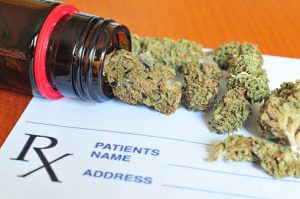
On the other hand, there has not been a decline in medication prescriptions for ailments that cannot be treated with medical marijuana.
Senior researcher W. David Bradford said, “There was a substantial shift away from the use of [U.S. Food and Drug Administration]-approved drugs when states turned their medical marijuana laws on.”
Medical marijuana is often used to treat pain, leading to a large decrease in the use of prescription painkillers. For this reason, medical marijuana may contribute to a decline in the deaths resulting from the overdose of drugs such as opiates, morphine, and codeine. “If you never start using an opiate, then you’re not put on the path to opiate misuse, opiate abuse, and death,” Bradford explained.
The researchers compared states that have legalized medical marijuana to states that have not, and looked at specific ailments medical marijuana can treat including anxiety, depression, glaucoma, nausea, pain, psychosis, seizures, sleep disorders, and spasticity.
Pain treatment with medical marijuana has the most evidence in its favor. There were 1,826 fewer daily doses of painkillers prescribed on average in the states that allow medical marijuana, compared to those states that do not.
The only drugs not impacted by the use of medical marijuana are those to treat glaucoma and spasticity, as these conditions are least proven to benefit from the effects of medical marijuana.
Dr. David Katz, director of the Yale University Prevention Research Center in New Haven, said “[marijuana is] not a dangerous drug, in the grand scheme of things” and that the FDA may consider approving it as a replacement for medications that lead to side effects.
“What we want in medicine is to use the right thing for the right patient at the right time — something that relieves a disease, does it more effectively than anything else, and does it with a high margin of safety. This research indicates that marijuana is populating exactly such a niche,” explained Katz.
In order for medical marijuana to get approved by the FDA, the organization must access and evaluate its effectiveness and safety. Further research is then required in order to assist the FDA in the approval process.
Also, read Bel Marra Health’s article: Marijuana potential for Alzheimer’s disease prevention follows growing research on cannabis-based drugs.
Sources:
http://content.healthaffairs.org/content/35/7/1230.abstract